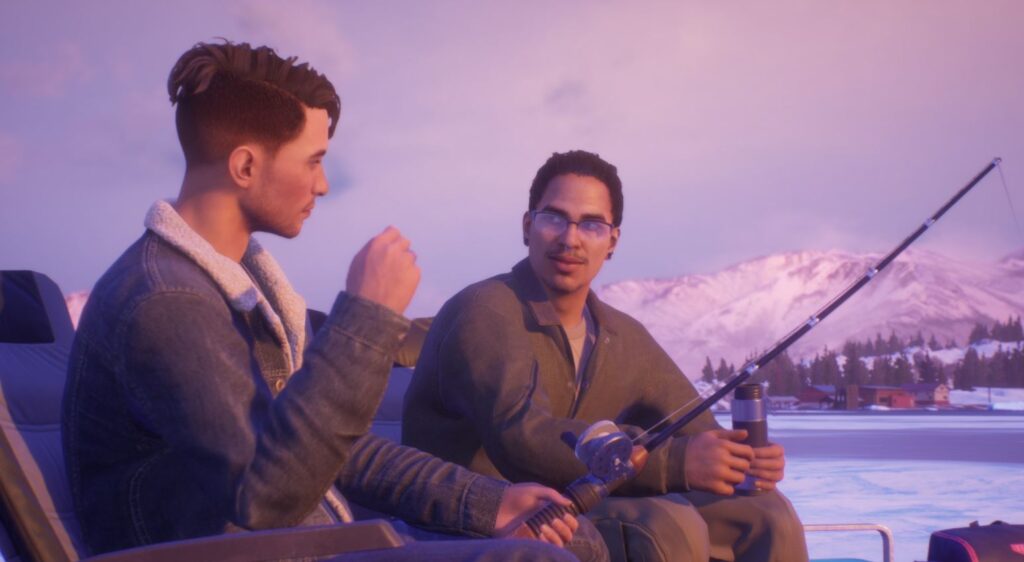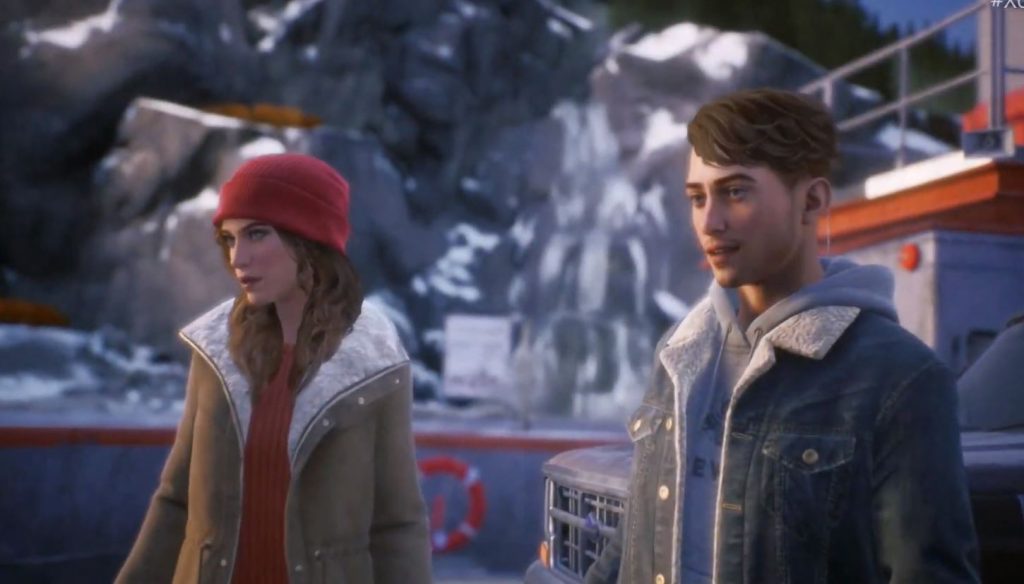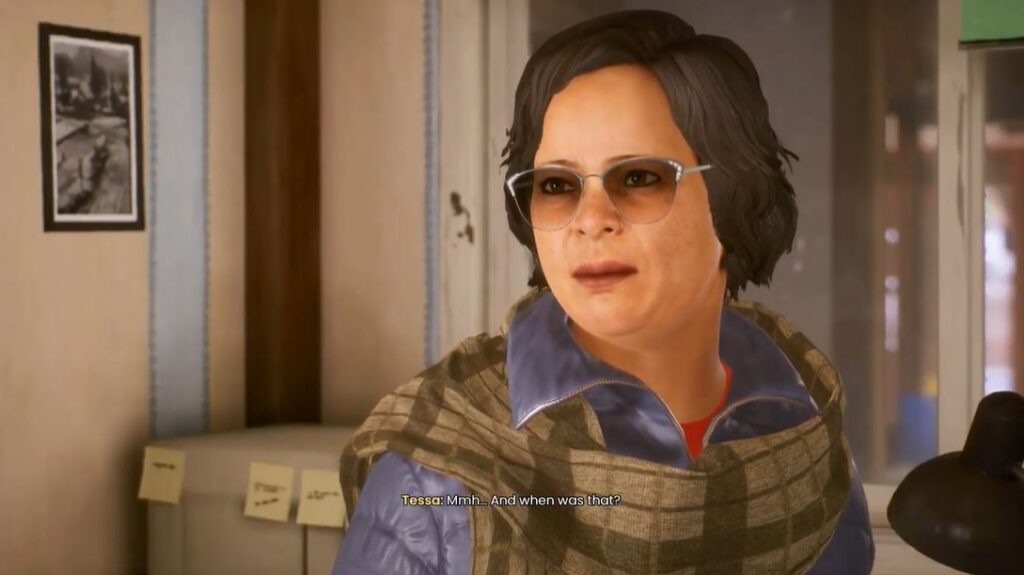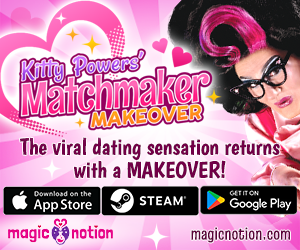
Tell Me Why is the perfect example of the importance behind chosen family
DONTNOD’s story-driven, action-adventure title Tell My Why is one of the few major developer games that focused on one of the most important themes found in queer media: chosen family. Chosen family can be the difference between life and death for queer people, and while I played through the 2020 Microsoft released game, I couldn’t help but reflect on my own struggles finding and needing a chosen family.
These days, you will find me walking along the Santa Fe trails in New Mexico, USA during my free time. Chances are, I’m wearing a black pair of hiking boots, dark blue skinny jeans, and a bright pink hoodie. Kiesza’s 2020 release “All Of The Feelings” will be blasting obnoxiously loud through my headphones. There’s a bounce in my step and I am now walking almost every day for at least two miles.
If this were 2019, I’d be dressed in all black, wearing a pair of baggy jeans, and looking at the ground. I also wouldn’t be walking every day. I would weigh about thirty pounds more. So what changed? I jokingly tell my chosen family that it took a global pandemic to get me to finally exercise, and in some cases, it’s true. However, I refuse to ignore my willingness to change because this gain in confidence came with the loss of many close friends and family.
Following the main characters Tyler and Alyson Ronan, the game made history as the first triple-A game featuring a leading and playable transgender character. DONTNOD, the game’s developer, knew that this was a big deal and did a lot of homework in developing Tyler, and the game deserves all its accolades and awards. Various sources from the trans community were consulted in making sure that Tyler’s story had authentic development behind it. Even Tyler’s voice actor, August Black, is a trans man. One story element that stands out to me is just how relatable Tyler’s decisions on who becomes his chosen family is to the collective queer story of those of us in the LGBTIAQ+ community.
Tyler’s present story begins with him packing his things, after living in the Fireweed Residential Center for a decade. It will be the first time that he sees his twin sister since they were separated many years ago due to the traumatic death of their mother. He and Alyson decide that it’s time to visit their childhood home and face their past.
At the beginning of the story, players are led to believe that Tyler is the one who shot their transphobic mother in self-defence after she had tried to kill him when he had cut his hair. The traumatic experience left the twins separated — Tyler was assumed the killer and spent a decade going through therapy, recovery, and self-discovery at the Fireweed Residential Center; Alyson stayed in Delos Crossing and was adopted by the Delos police chief, Eddy Brown.

The truth is far more complicated. It is revealed that Alyson is the one who shot their mother but Tyler took the blame to protect Alyson. Unlike Tyler, Alyson never went to therapy and therefore never recovered from the traumatic experience.
The narrative branches out into two main stories: Tyler moving on and choosing who to forgive and Alyson deciding to process her trauma or remain in Delos. Both narratives are compelling but it’s Tyler’s journey of forming his chosen family that resonated with me the most. In Tyler’s story, he has a few people players will help him decide to forgive and let back in his life or cut ties with. The most significant of the three is Alyson’s father figure, Eddy Brown. He was the one who decided to separate the twins and sent Tyler to a juvenile detention center. Tyler feels resentment towards him for understandable reasons, but the player must decide if it is worth pushing Eddy out of his life if it means distancing from Alyson in the process.
This decision hits home on so many levels. Over the past seven years, I’ve seen my Facebook friends list shrink from over 300 people to around 80. I decided to leave my home state of New Mexico and pursue an MFA in creative writing nonfiction. By the time I graduated in 2018, I had spent four years writing, rewriting, and deep-diving into my life up to the age of 30. In particular, I spent most of the time recalling and recovering from the traumatic events that happened in my 20s. Besides struggling with suicidal ideation, risky sexual behavior, sexual assault, and mental illness, I also had never truly processed the attempted suicide of my mother.
Much like Tyler and Alyson’s mother, my mother suffered from mental illness. She was given different medications to help balance the chemicals in her brain. The problem with those medications is that they can have unpredictable effects. After feeling a lack of empathy thanks to her medication, my mom decided on that day that the world no longer needed her. I have always been told that I am the spitting image of my mom, and therefore thought that I suffered from the same mental illnesses. This distorted way of thinking I will find out in counseling is called “enmeshment.” The dividing lines between my mother’s identity and my own tangled up, and I started to adopt her dark ways of thinking. This identity crisis collided with my queer identity and it wasn’t until I went to grad school that I truly felt brave enough to not just stand up for myself but also found the strength to say goodbye to some of my chosen family members who no longer supported me the way I needed to be supported. In returning to New Mexico, I made two big decisions: to cut myself off from my childhood friend and her mother, who was like an aunt to me since I was young.
My former childhood friend has always been supportive of me and was even one of the first people I came out to when I was an undergraduate. She gave me a place to stay before I moved out and even gave me rides to job interviews that have acted as stepping stones to my recent career choices. The problem with our relationship was revealed before I left for Indianapolis. We’d been watching movies together a few times a week, and one day I had suggested ‘The Weekend‘, a queer indie film. She didn’t like the prospect of watching two men become intimate with one another. She preferred to watch a show like Orange Is The New Black. This frustrated me because she was in my most inner circle, the one where people aren’t friends, but are family. Her being uncomfortable with watching guys kiss made me wonder how she would react if I were with my boyfriend and we had kissed. This made me realize that even though she was okay with my queerness, she wasn’t okay with the physical expression of it.

My aunt-figure was always someone I looked up to as a child. She was wise and sometimes I could spend hours hearing her ideas about the world, religion, and life. But somewhere along the way, her views of them began to shift into a more conservative one. Things finally came to a head this past year when I discovered she’d become a vocal Trump supporter but was also anti-Black Lives Matter. As if that wasn’t bad enough, she’d become a harmful conspiracy theorist. I saw her public posts on Facebook and was disgusted by them. This past spring, right when COVID had hit my state, I tried to avoid her when I was at the store but she noticed me and I felt obligated to make conversation with her. She didn’t wear her mask properly and considered the use of them pointless. She hugged me and I felt disgusted. Over the past year, I’ve had to reconcile with the decision that I no longer want to be around them even though their family friends and I will undoubtedly see them in the future.
Tyler had to make a similar decision with Eddy and Alyson. Initially, I chose to forgive Eddy because ‘it felt like the right thing to do,’ but it made me wonder: how many times in the past did I make exceptions to my emotions and allowed people that were relatives, longtime friends, and family friends continue to invade my space because I didn’t want to inconvenience them? On a subsequent playthrough, I chose not to forgive him. This caused a rift in the twin’s bond, which is one of the key mechanics in the game.
But for me, the most upsetting member of Tyler’s chosen family is Tessa Vecci, a friend of Tyler’s mother. Tessa was Tyler’s aunt figure and he adored her. As you progress through the game, however, it is revealed that Tessa had given his mother a conversion therapy camp leaflet and had pushed her to not accept Tyler for who he was. His mother was upset with the suggestion. Depending on how players approach Tessa in the earlier part of the game, she will either accept that Tyler is a man, or not. What’s heartwarming to know is that Tyler will say that there is no way they can have a relationship if she can’t accept who he is. Moreover, I feel like, in some ways, my relationships with my childhood friend and her mom are like that of the scenario in which Tessa didn’t accept Tyler for who he is.
But not all of the chosen family choices within Tell Me Why are as heavy-handed. Michael Abila, Alyson’s friend, and coworker is a potential love interest for Tyler. There was no way I was NOT choosing this option! Michael is a queer man who is a part of the Alaskan Tlingit community. His addition to the narrative acts as the characterization of chosen family and the support that comes with letting those in who do accept you for who you are. Michael is the one who offers Tyler to come to join him and Alyson to live in Juno.

“I’ve got a community there,” Michael tells Tyler during one scene as the two are sitting on a couch. “Could be yours too.” After Tyler awkwardly deflects his offer, Michael says what I consider to be at the heart of Tell Me Why’s theme:
“You have no idea how life-saving a chosen family could be. They pulled me out of the dark more times than I can count.” Earlier in the game, Michael discussed how his queerness was at odds with his cultural identity. 2011 was a dark year for him and would have been darker has his uncle not taken him to the Juneau Coalition of Equality. If Michael and Tyler end up together, the epilogue will reveal that Tyler not only found his chosen family but also pursued a career as a mentor at JCE.
Perhaps it’s no surprise that my choices led to experiencing Tyler’s ending. It fits well with where I am at in my life. In an article on the video game’s official website, there is an interview with Elise Galmard, the lead narrative designer at DONTNOD Entertainment who worked on the epilogue options. In her opinion, she sees Tyler’s role in the story is that of the voice of recovery. “Tyler has made his peace with what went down,” she said. “In a way, Tyler ‘did the work’ already when he was in Fireweed by going through therapy and dealing with what had happened. Going back to Delos was just a way to seal this chapter of his life shut.”
Elise also confirms in the interview that she believes that Tell Me Why is a story that focuses on “the power of chosen family.” She says: “When you’re LGBTQIA+, it’s important to have a supportive group that’s built on genuine friendships, or more – whatever feels right for you at the time. Tyler doesn’t build a found family in three days, but the choices he makes with his relationships bring him to a place where he’s ready to let people in and make those connections.”
It is nearing the end of January 2021 as I write this, and I wonder where my path in life will lead me. Perhaps walking down the trails dressed in a black pair of hiking boots, dark blue skinny jeans, and a bright pink hoodie is a physical manifestation of the brightness that is to come.
I’ve lost so many chosen family members over the years and so far I haven’t been able to build up those numbers just yet. For now, I focus on the members that I have left and hope that I too will find my chosen family, just as Tyler did in Tell Me Why.





